
The Bottom Line
Introduction & Drive Details
GIGABYTE's AORUS Gen4 7000s 2TB is not only one of the fastest SSDs we've ever tested but also has the distinction of being the first retail SSD tested on our new PCIe Gen4 Intel Rocket Lake test bench. The 2TB GIGABYTE AORUS 7000s chewed right through our benchmark suite and even managed to set a few lab records in the process. So naturally, we expect to see great performance coming off the 1TB model as well.
Now, the 1TB AORUS 7000s isn't rated for quite as much performance as the 2TB model. However, it's still amazingly fast, fully capable of delivering over 7 GB/s sequential throughput and 1.5 million 4K random IOPS just like its higher capacity sibling. In fact, we have the 1TB model beating the 2TB model in some of our benchmarks, as you will see.
In terms of features, the 1TB model is nearly identical to the 2TB. It comes pre-fitted with the same nanocarbon coated heat sink that wicks heat from the drive with amazing efficiency while looking stunning at the same time. There is a slight difference in z-height between the two siblings, with the advantage going to the 1TB model due to its single-sided PCB. A single-sided SSD is thinner (better) and easier to cool because all heat generation emanates directly into the heat sink.
Drive Details
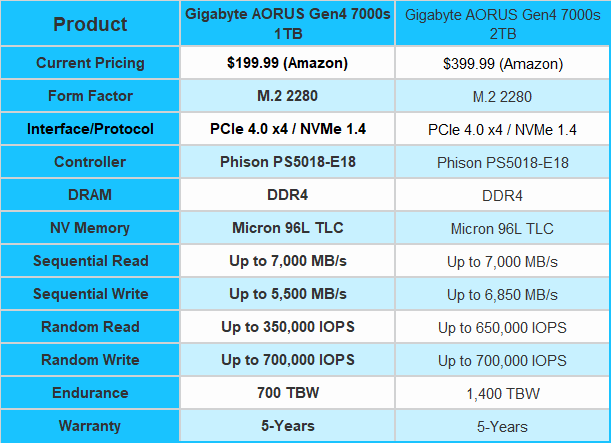
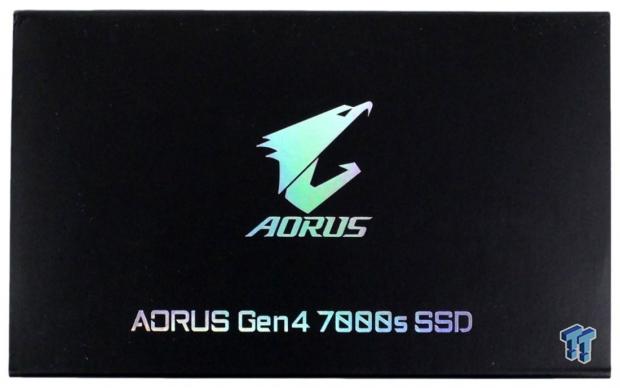
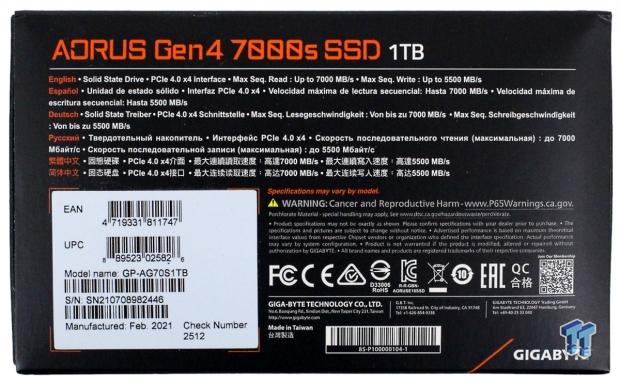


The nanocarbon-coated heat sink gives the drive a dangerously fast look that we really like. We will also note that the heat sink is easily removable if you want to remove it. This is an important feature, and we are glad GIGABYTE did it this way.
Jon's Test System Specifications
- Motherboard: ASUS ROG Maximus XIII HERO - Buy from Amazon
- CPU: Intel Core i9-11900K - Buy from Amazon
- Cooler: Alphacool Eissturm Hurricane Copper 45 - Buy from Amazon
- RAM: Thermaltake TOUGHRAM XG RGB DDR4 4600MHz 16GB (8GB x 2) - Buy from Amazon
- Video Card: Zotac 2080Ti AMP Edition - Buy from Amazon
- Case: PrimoChill's Praxis Wetbench - Buy from Amazon
- Power Supply: Corsair AX1000 - Buy from Amazon
- OS: Microsoft Windows 10 Pro 64-bit - Buy from Amazon
Free SSD Software
GIGABYTE SSD Toolbox
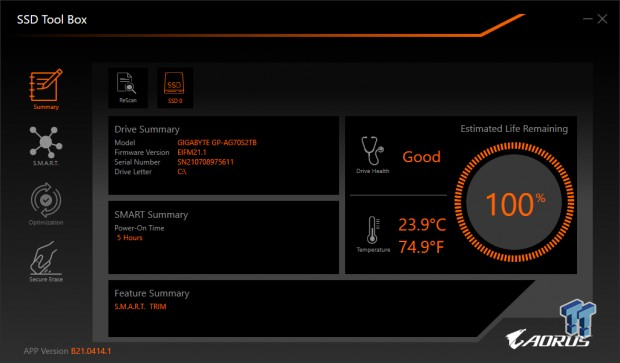
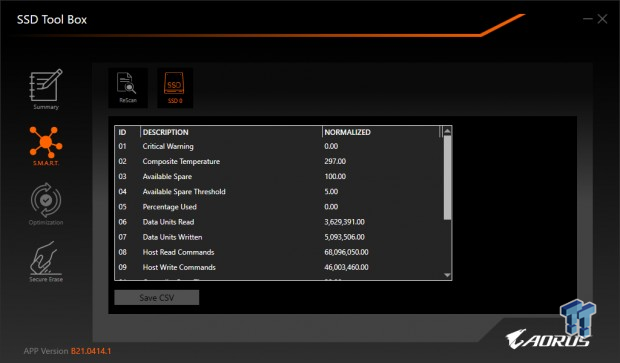
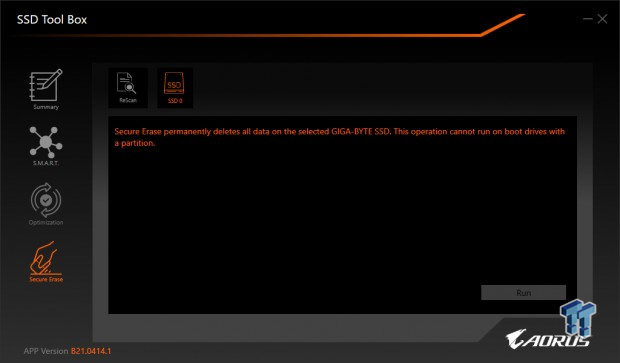
GIGABYTE offers an SSD Toolbox to complement its SSDs. Download Here The GIGABYTE SSD Toolbox monitors drive health and allows you to secure erase.
If you need to clone, there is freeware for that Download Here
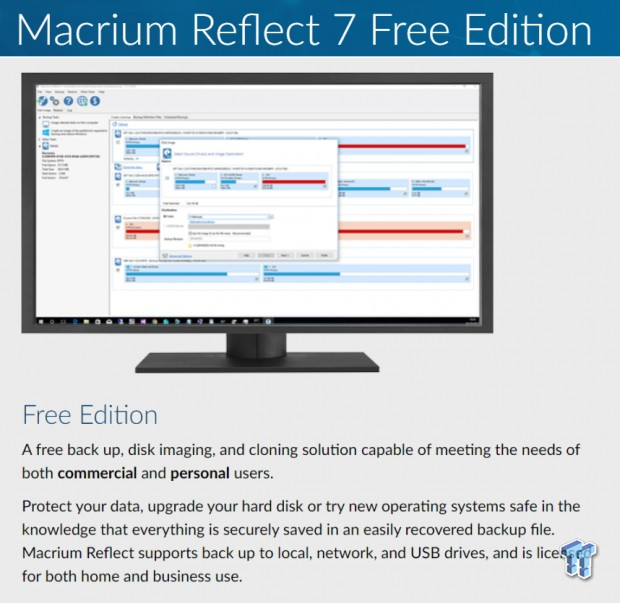
Synthetic Benchmarks: CDM & Anvils
CrystalDiskMark
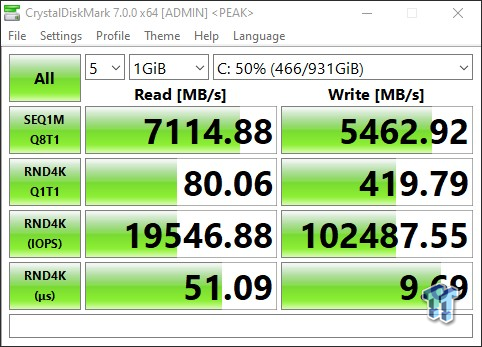
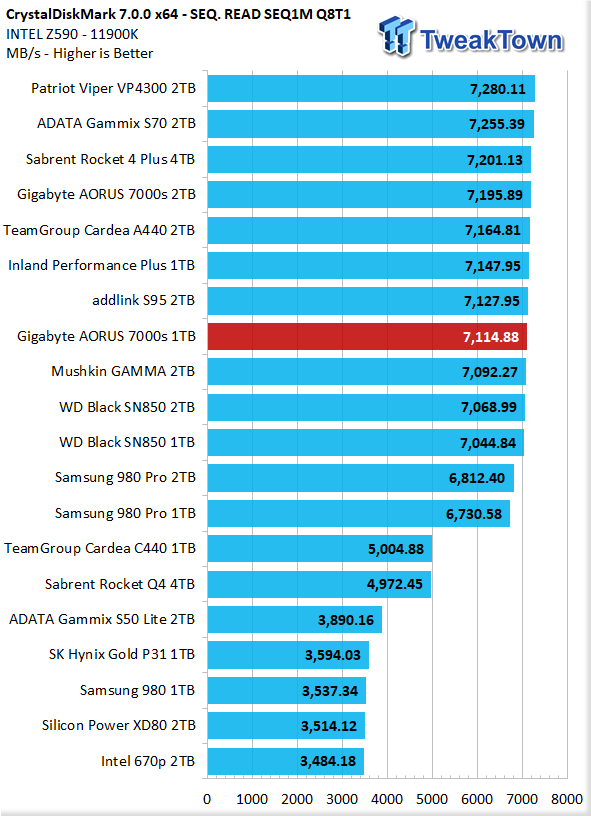
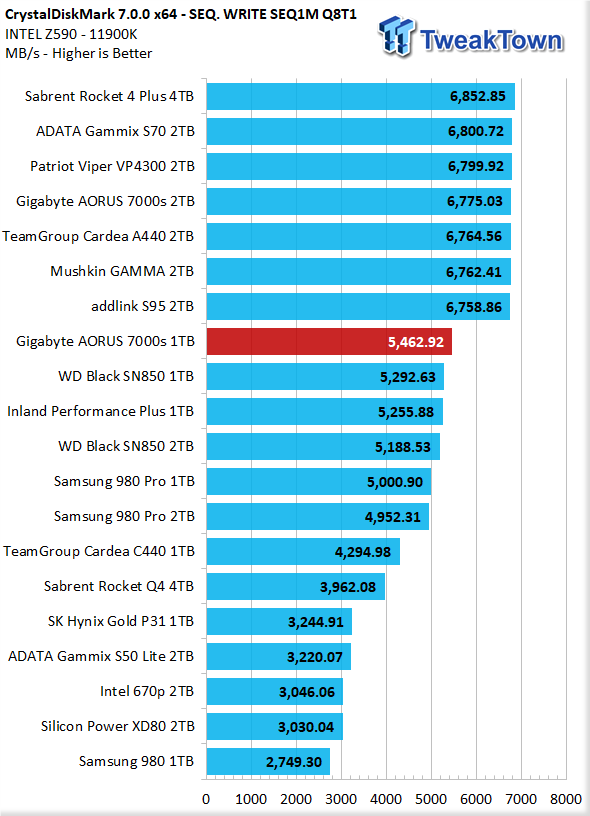
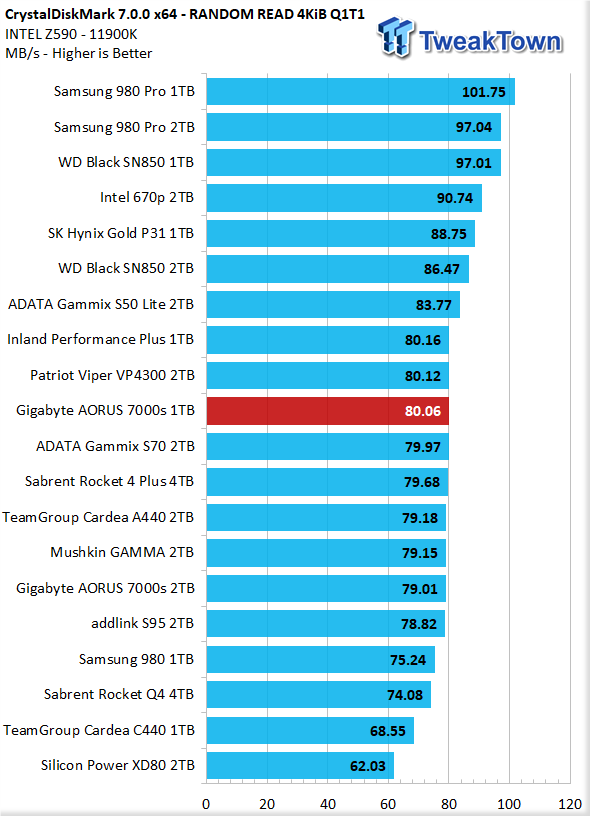
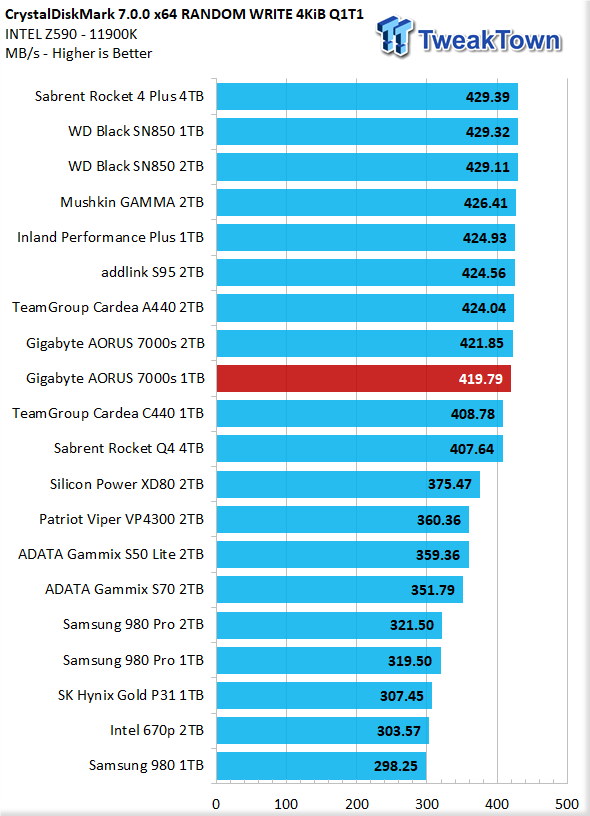
Let's go straight to what we find most impressive here, and that's the AORUS 7000s 1TB delivering by far the best sequential write performance we've seen from any 1TB SSD to date. Impressive. In fact, compare it to the Inland performance plus, which has the exact same hardware makeup, and we find the 1TB 7000s beating it by over 200 MB/s. Some kind of special GIGABYTE sauce? Who knows?
7,100 MB/s seq read gives the drive even more clout, as does it by delivering, for the second time in lab history, 80 MB/s QD1 random read performance from a Phison powered retail SSD.
Anvil's Storage Utilities
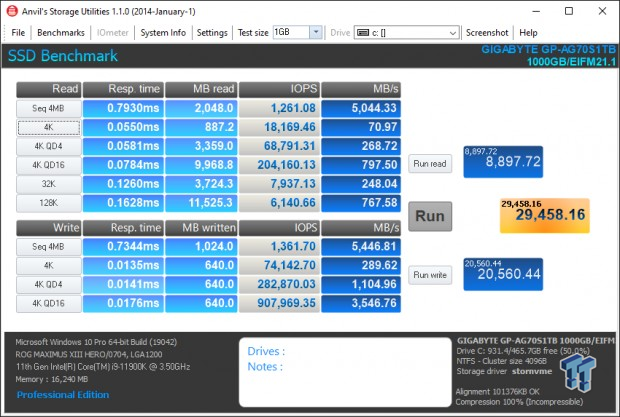
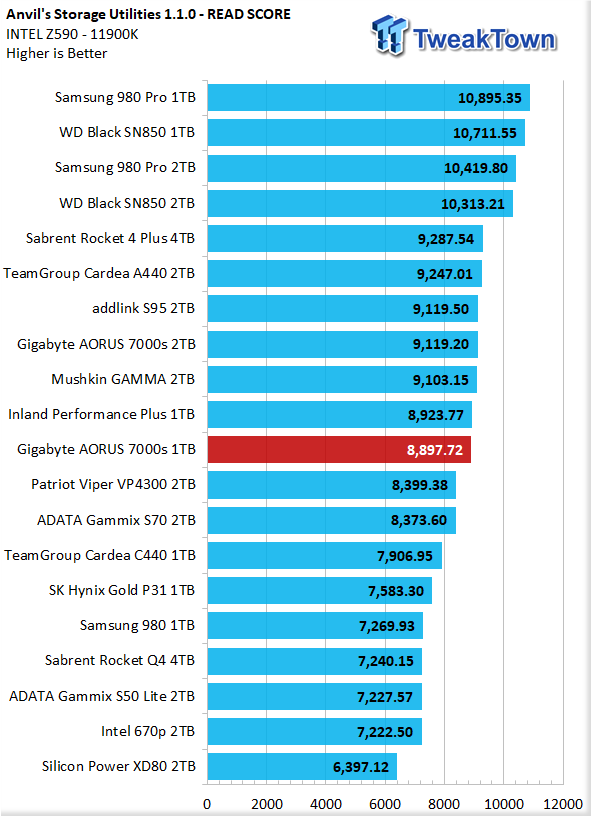
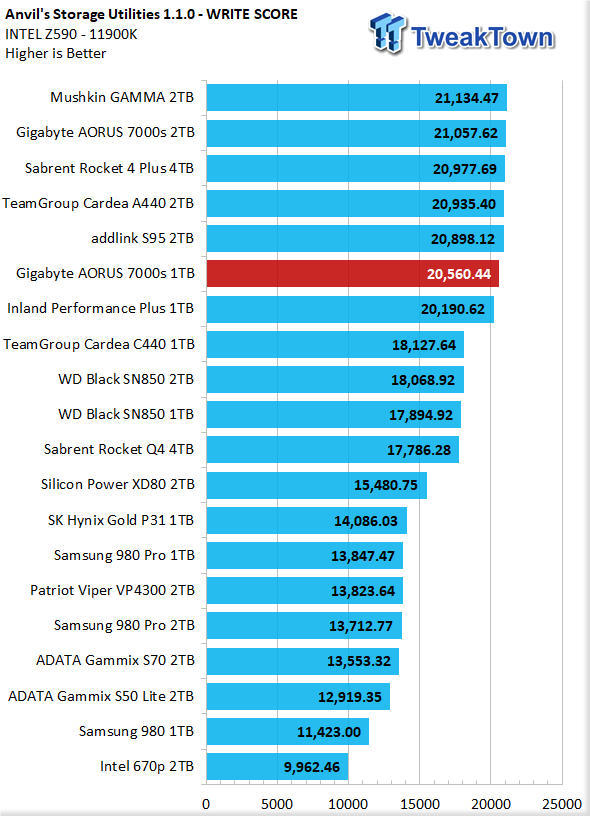
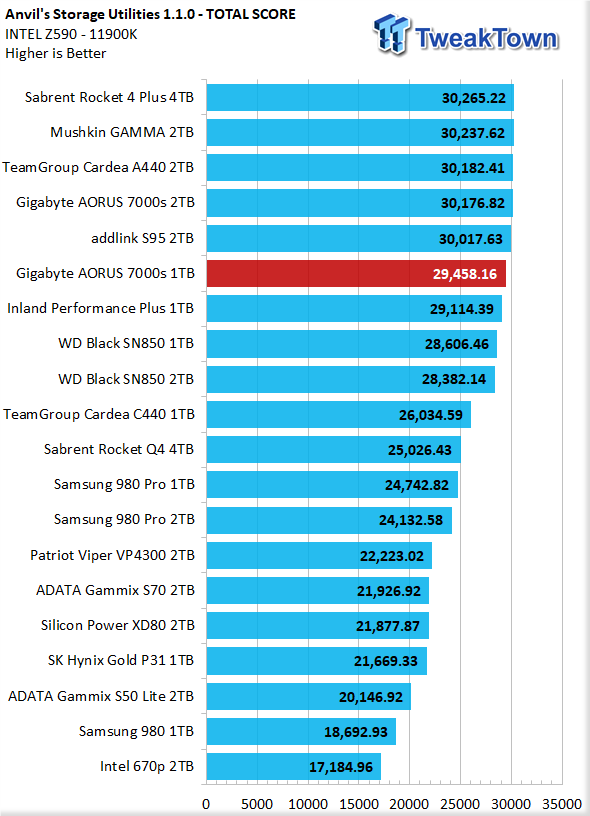
The 1TB AORUS 7000s again lights up our charts by delivering another lab record for a 1TB flash-based SSD. This time it delivers lab records for 1TB write score, and for total score for a 1TB SSD. Impressive.
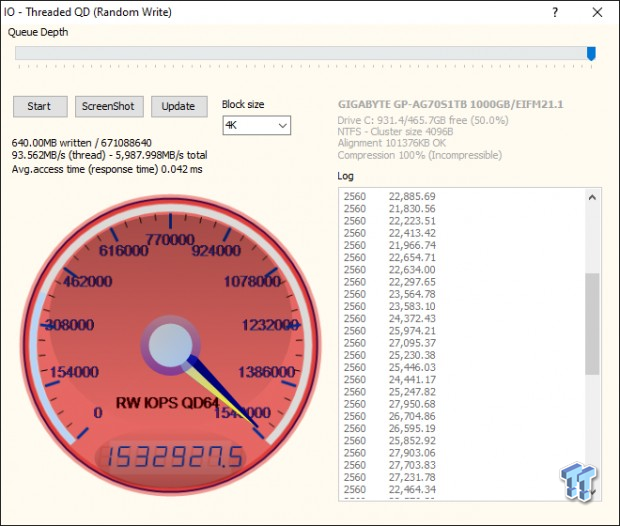
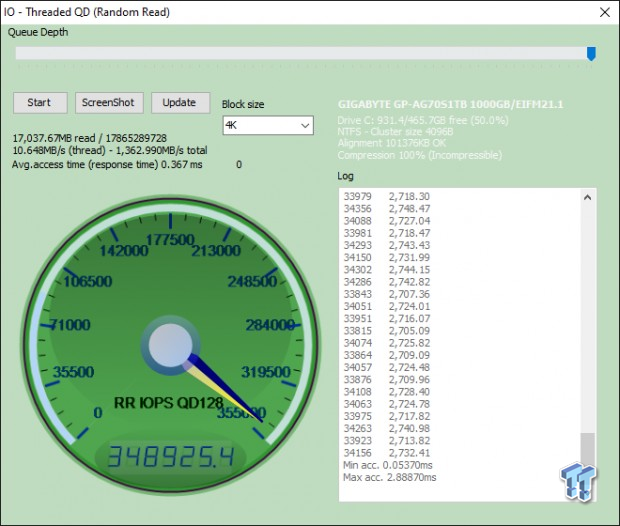
And there you have it, 1.53 million random 4K IOPS. This is more than double what the drive is rated for by the factory. Max random read IOPS come in almost exactly as rated.
Synthetic Benchmarks: AS SSD & ATTO
AS SSD
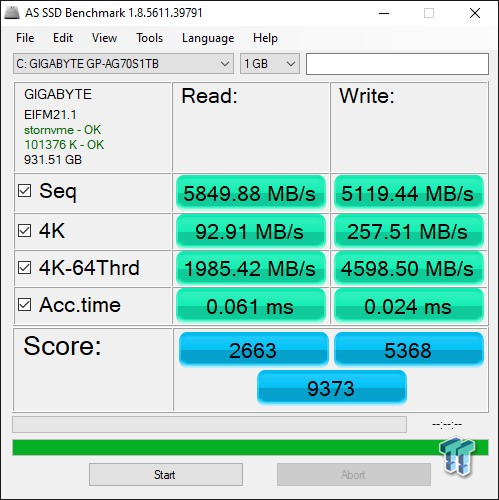
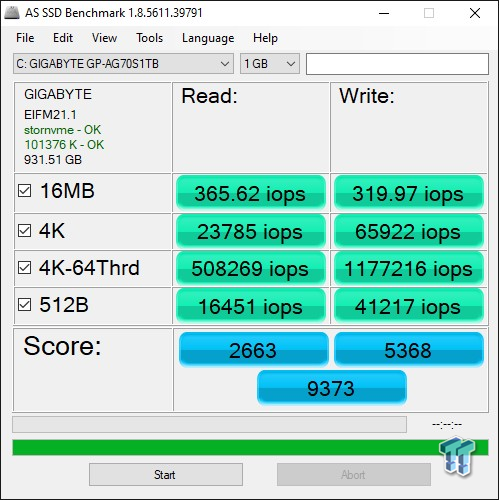
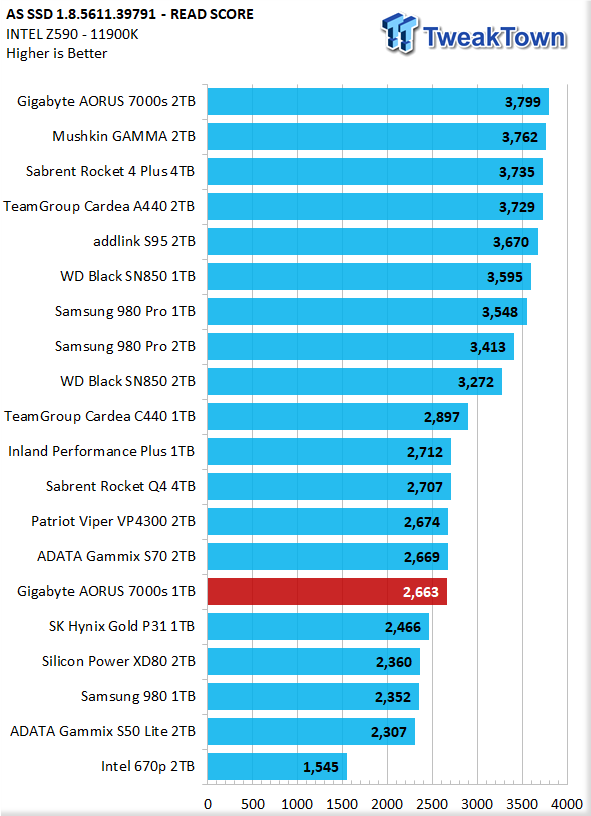
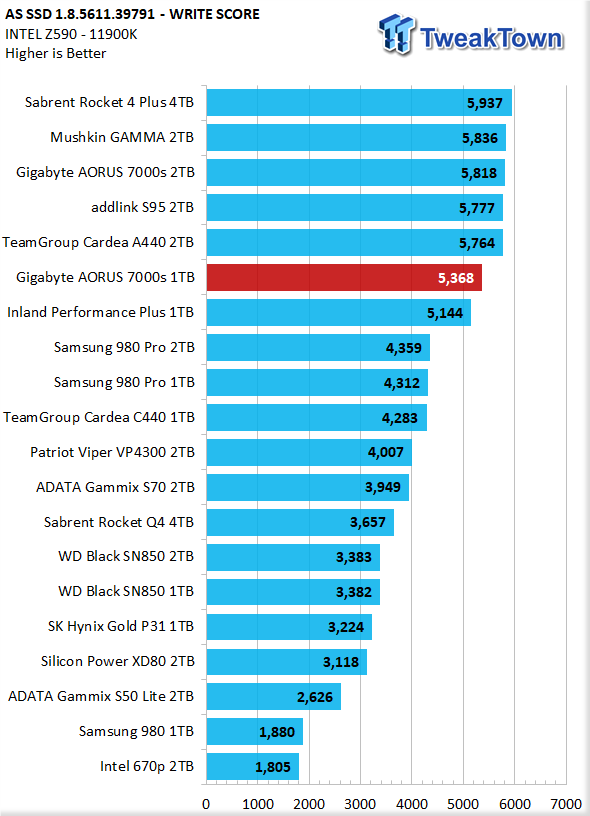
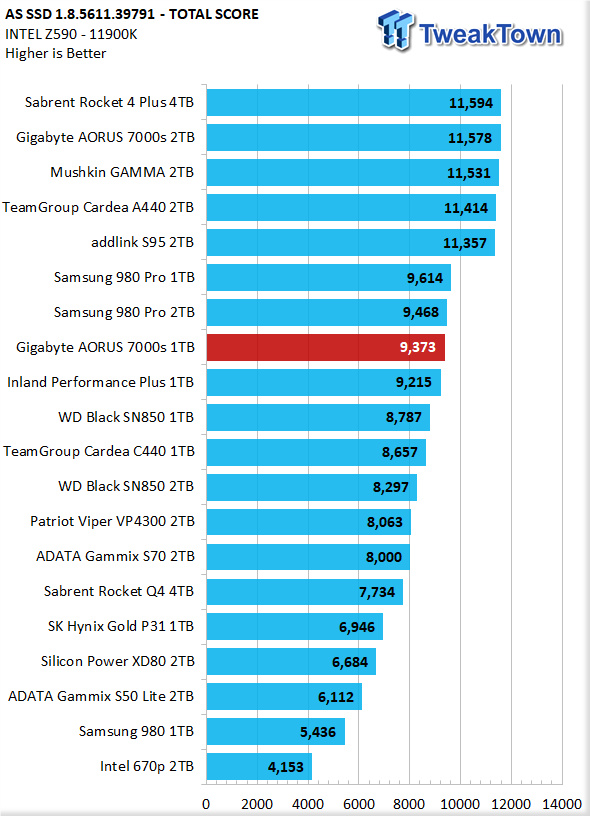
Looking at our write chart, we again find the 1TB AORUS 7000s leading all 1TB SSDs. Impressive.
ATTO
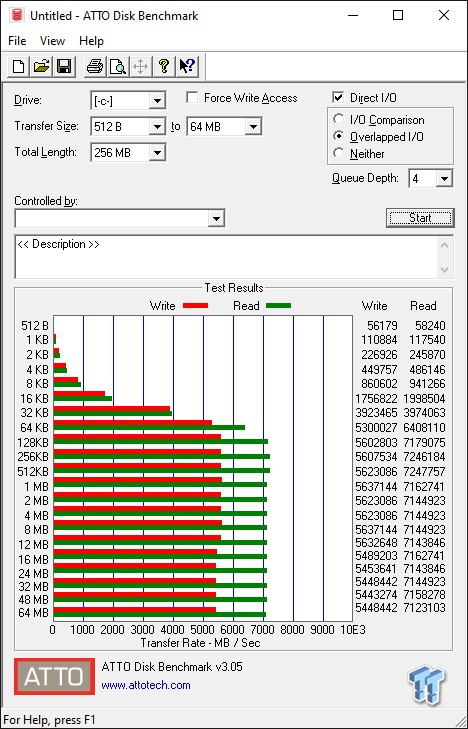
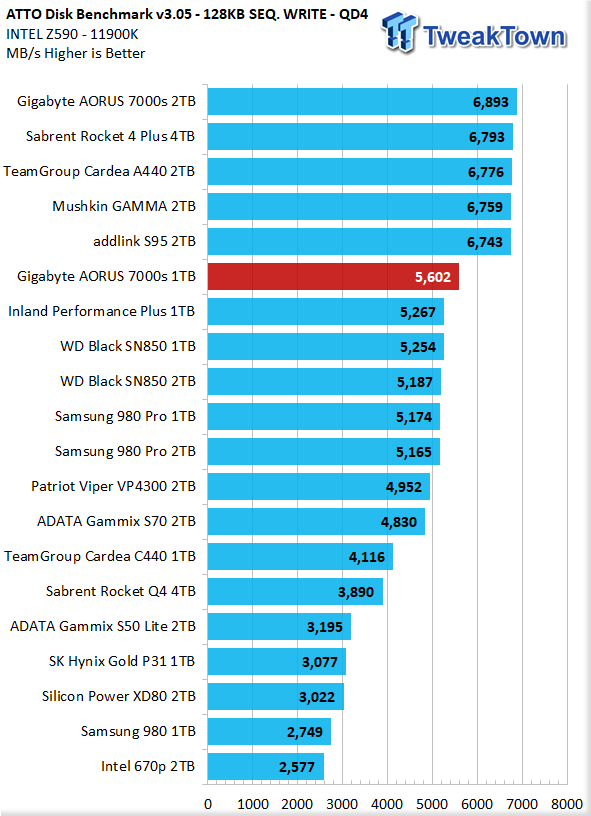
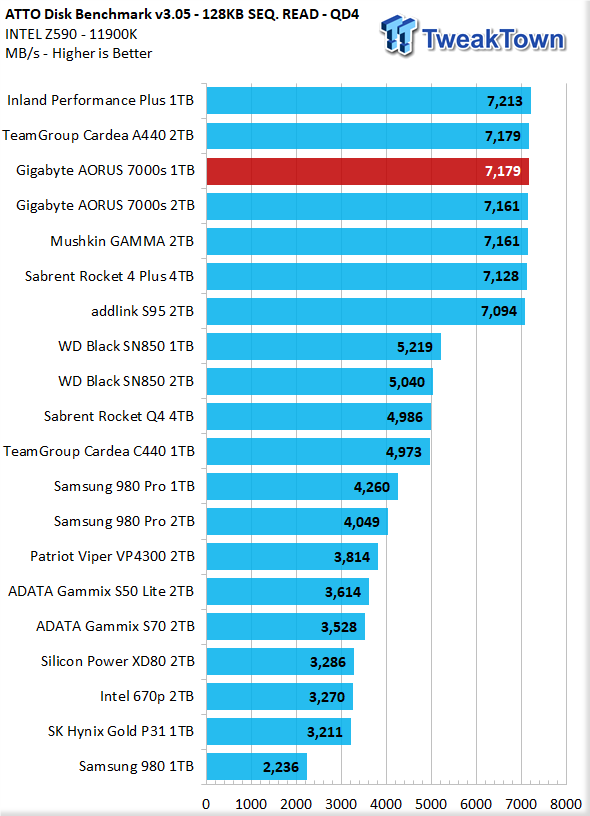
We are looking for two things primarily when evaluating ATTO results. First, we are looking for 50 MB/s read/write at 512 B transfers. The AORUS 7000s gives us what we are wanting to see here. More importantly, we are looking for full read speed at 128K transfers. The Phison E18 powered beast delivers here as well.
Real-World Testing: Transfer Rates & Gaming
Transfer Rates
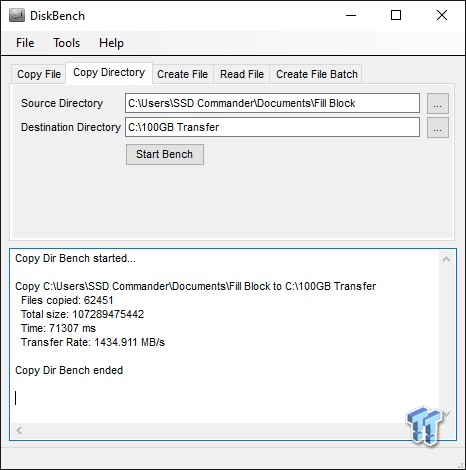
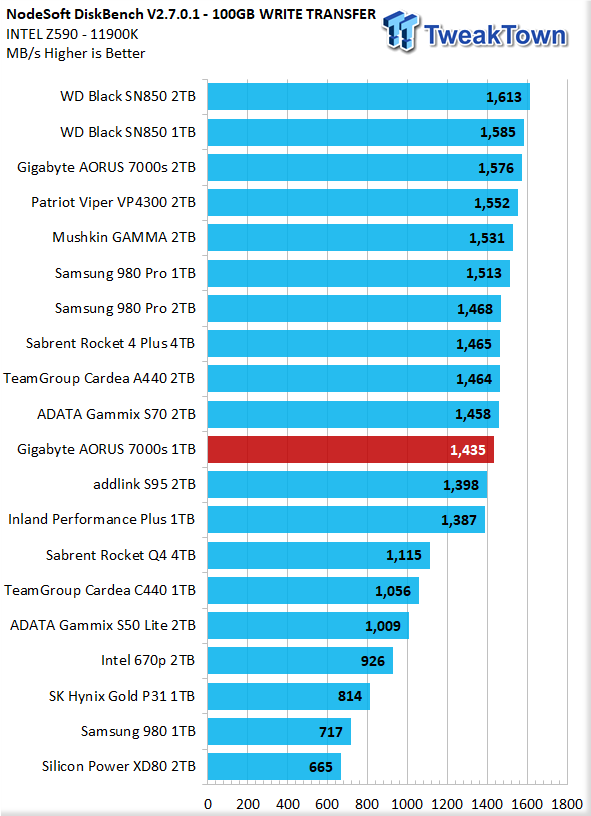
1,400 MB/s here is a very good showing, especially for a 1TB E18 powered SSD.
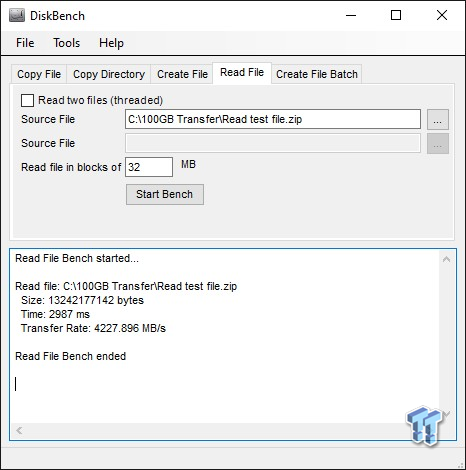
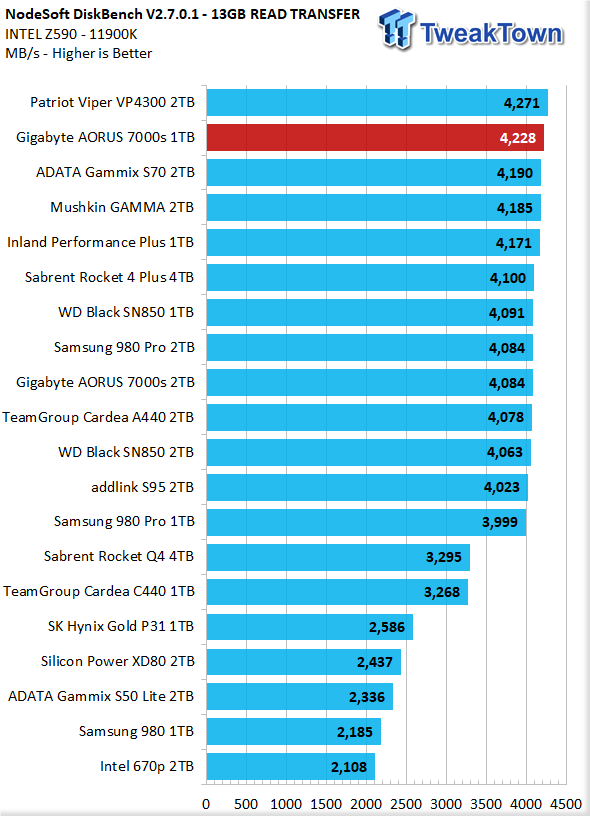
Outstanding. The 1TB AORUS 7000s delivers the best-read transfer rate we've seen to date from any Phison E18 based with 96L flash running on an Intel-based system. Totally unexpected from a 1TB, especially considering it is smoking the 2TB version. Secret Sauce? Who knows?
Game Level Loading
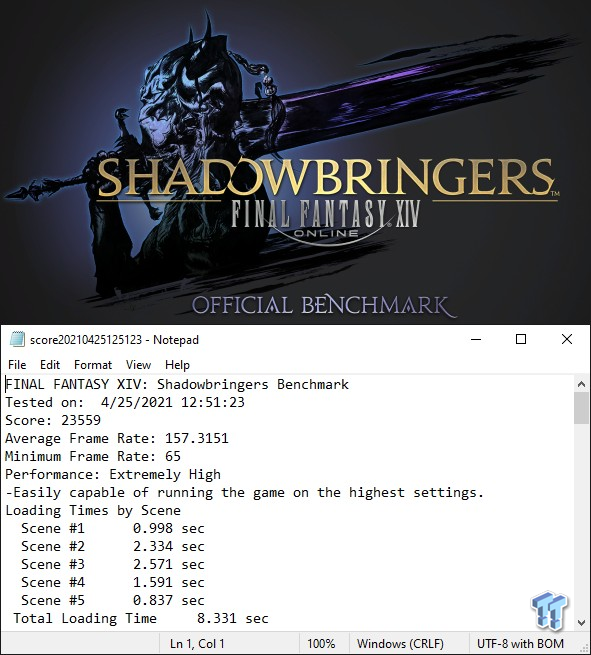
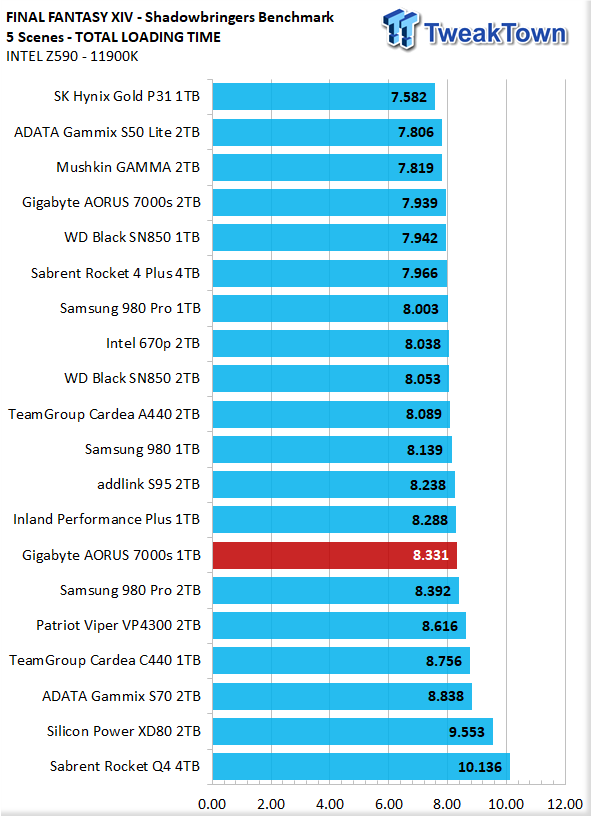
Although the 1TB AORUS drive charts in the bottom half of our chart, it's only one tenth of a second slower per level than the best time we've recorded for any hyper-class SSD.
Real-World Testing: PCMark 10 Storage Tests
PCMark 10 Storage Test is the most advanced and most accurate real-world consumer storage test ever made. There are four different tests you can choose from; we run two of them.
The Full System Drive Benchmark and the Quick System Drive Benchmark. The Full System Drive Benchmark writes 204 GB of data over the duration of the test. The Quick System Drive Benchmark writes 23 GB of data over the duration of the test. These tests directly correlate with user experience. Of the two tests, we feel that the Quick System Drive Test most accurately replicates a typical user experience.
PCMark 10 Full System Drive Benchmark
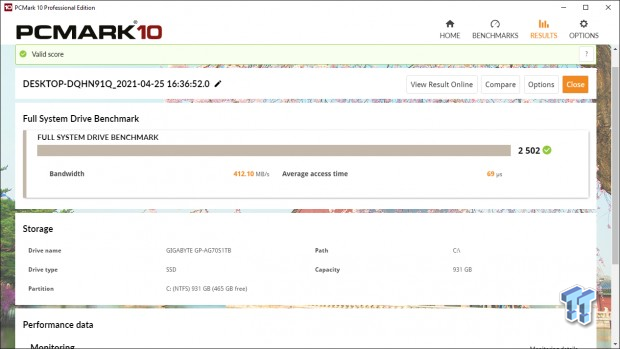
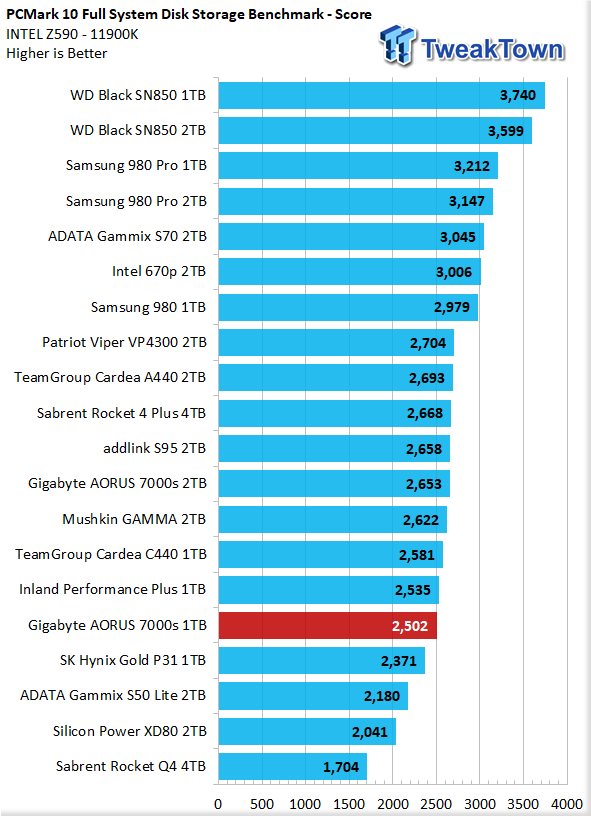
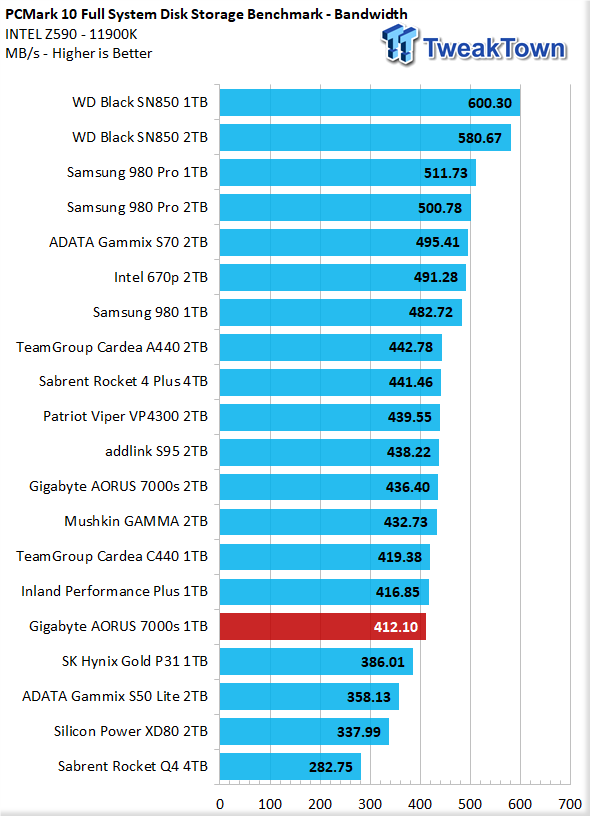
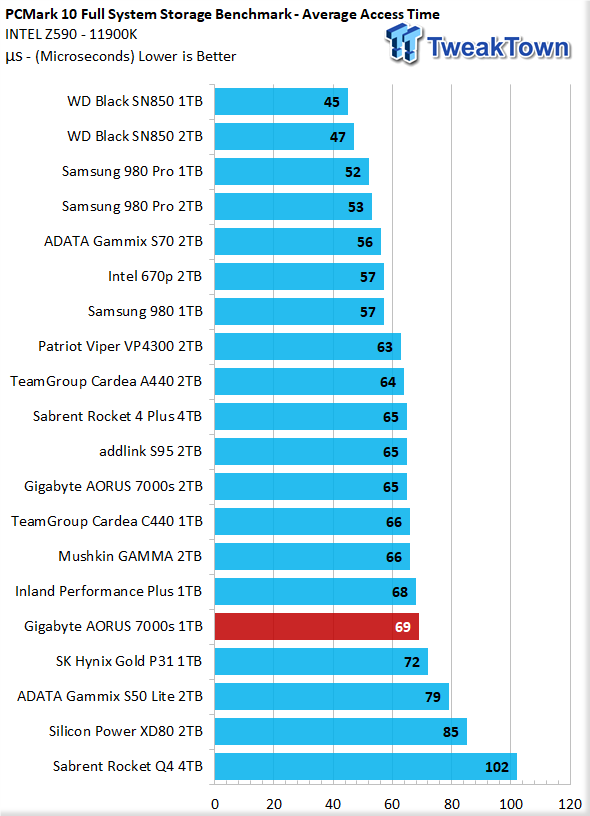
This test writes over 204GB data and covers a broad range of common consumer tasks, including booting Windows 10, file transfers, Adobe and Office applications, and startup times for games including Battlefield V, COD Black Ops 4, and Overwatch. Unlike synthetic numbers, this is comprehensive real-world data which is why we use it to rank SSDs in terms of user experience.
We would like to see better scoring here, but all things considered, a score of 2,500 is well within what we consider an acceptable range, especially when you consider that nine of the SSDs on our chart are separated by a mere 200 points.
PCMark 10 Quick System Drive Benchmark
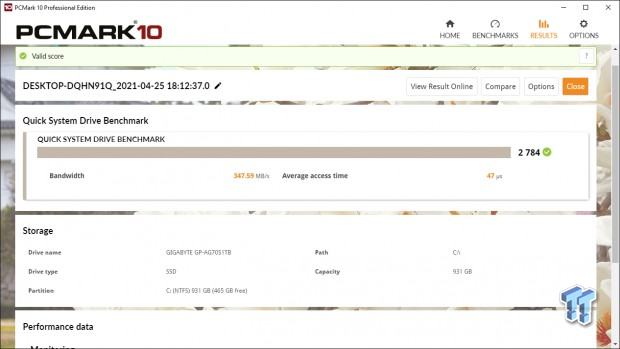
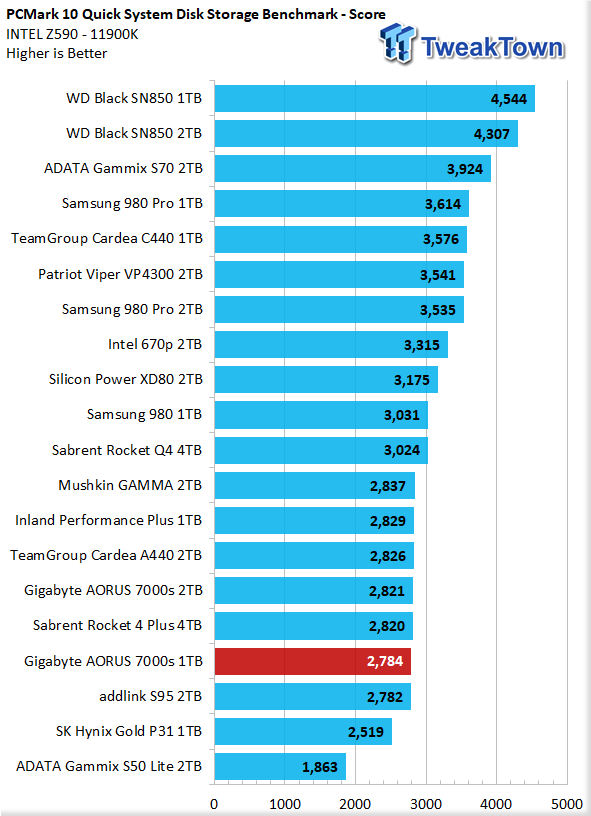
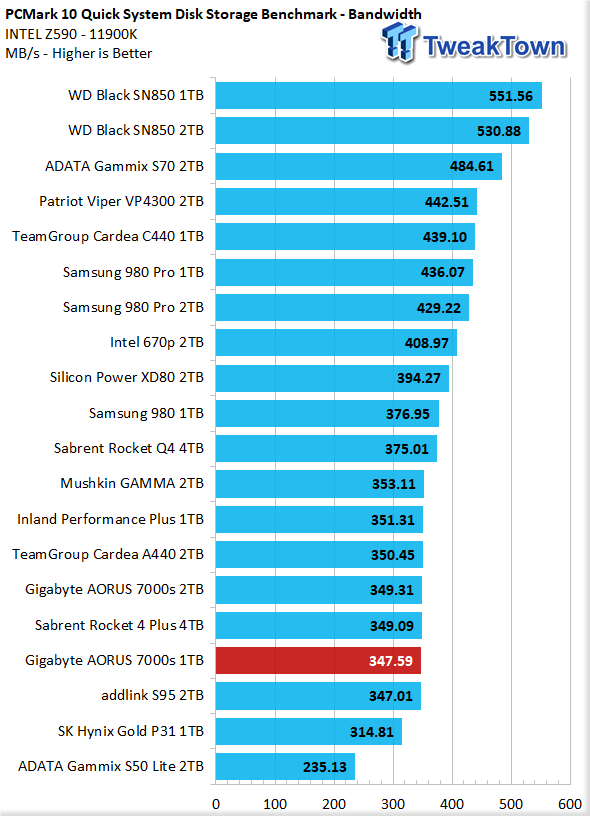
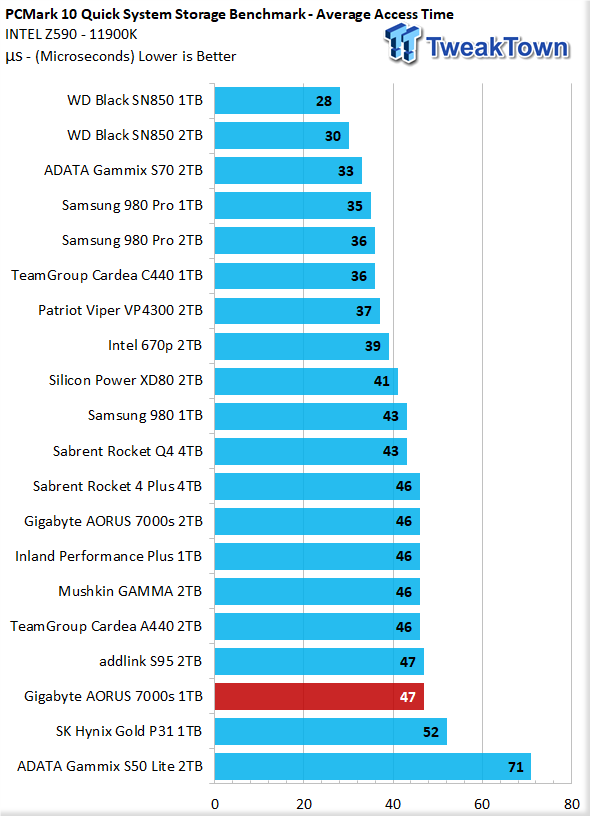
Again, we would like to see better scoring considering the importance we place on PCMark storage testing. Even E16 SSDs with QLC flash are beating E18 SSDs here. Nonetheless, our test subject's performance is still acceptable.
Final Thoughts
GIGABYTE's newest SSD has a lot to offer and, in many cases, delivers best-in-class performance. The drive's easily removable heat sink is highly functional and one of the best looking we've seen. The AORUS 7000s 1TB delivers sequential speeds that exceed 7,100 MB/s which is about as good as you can get from any 1TB Gen4 SSD. All-in-all a very desirable SSD.
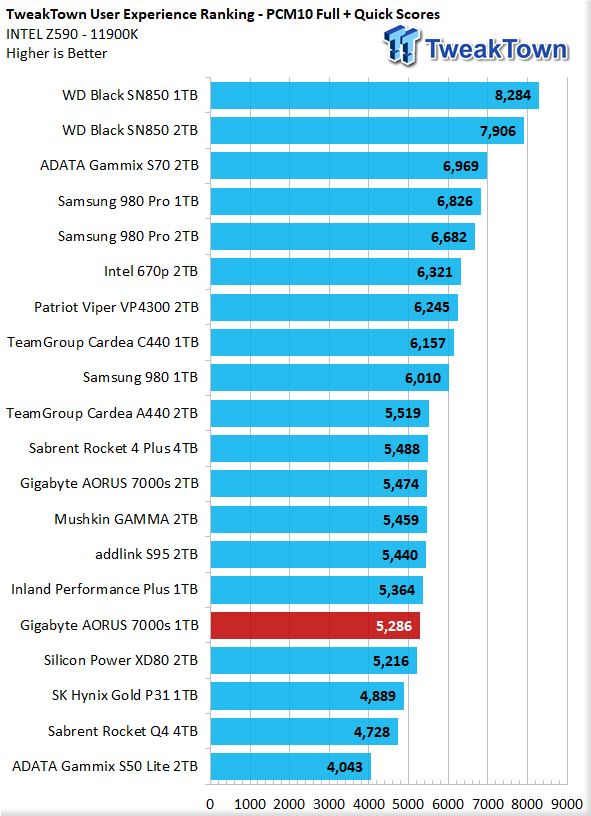
The AORUS 7000s is a true hyper-class SSD even though it places near the bottom of this chart. Here again, 200 points separates it from charting at average to above average.
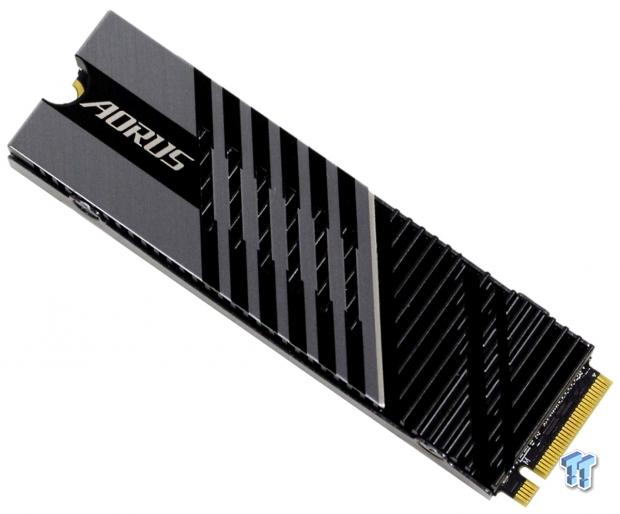
Looking back at our results, we noted several outstanding results delivered by the 1TB AORUS 7000s. CDM saw this hyper-class SSD serve data to the host at over 7,100 MB/s. Additionally, hitting 80 MB/s QD1 random read is worth noting. Anvils was even better, with the AORUS 7000s producing the highest total score we've seen from a 1TB flash-based SSD. What we liked the best of all was its read transfer performance, where it delivered the second-best we've seen to date from a flash-based SSD running on an Intel platform.
We find the GIGABYTE AORUS 7000s 1TB deserving of our recommendation and a coveted TweakTown award.
Pros
- Sequential Read
- Gaming
- Random Write
Cons
- Consumer Workloads
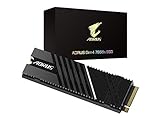
Performance |
90% |
Quality |
99% |
Features |
85% |
Value |
90% |
Overall |
91% |
Capable of delivering over 7,100 MB/s throughput, the GIGABYTE AORUS 7000s should be on your shortlist if you are in the market for some Gen4 goodness.

What's in Jon's PC?
- CPU: AMD Ryzen 7800X 3D
- MOTHERBOARD: GIGABYTE AORUS Master X670E
- RAM: Kingston Fury Renegade 7200MHz 32GB
- GPU: ZOTAC AMP Extreme GeForce RTX 4090
- SSD: Crucial T700 2TB Gen5
- OS: Windows 11 Pro
- COOLER: Lian Li Galahad 360 AIO
- CASE: Lian Li Lancool III
- KEYBOARD: Corsair K65 RGB Mini
- MOUSE: SteelSeries AEROX 5 Wireless
- MONITOR: ASUS ROG Strix PG27AQN 360Hz 1440p ULMB2
Similar Content
Related Tags

